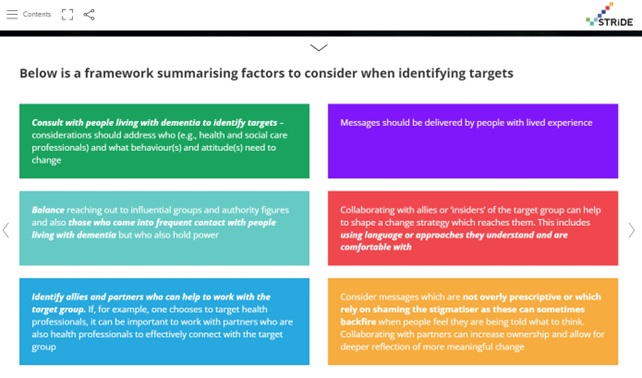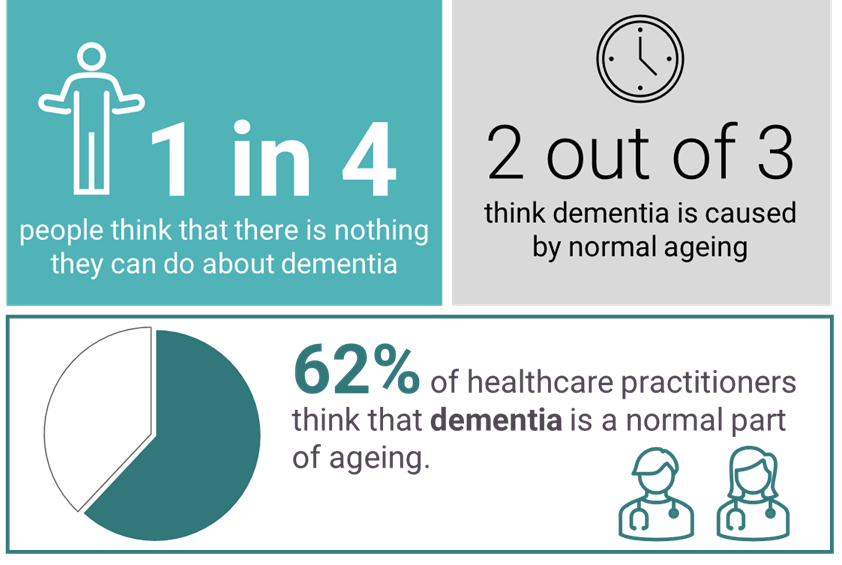86% of people living with dementia experience discrimination in at least one area of their life. This has important implications for them, their families, and for seeking timely diagnosis. As part of the London School of Economics and Political Science (LSE) Care Policy and Evaluation Centre (CPEC)’s ‘Dementia and Inequality’ campaign, researcher Elisa Aguzzoli provides a snapshot of how research is contributing to reducing dementia stigma around the world.
What is stigma and why should we discuss it?
People living with dementia and their families experience disproportionate stigma and discrimination. In the 2019 Alzheimer’s Disease Report, respondents described the consequences of stigma as being as bad or worse than the condition itself and, on many occasions, this can have detrimental effects on their health and wellbeing. At the individual level, stigma can undermine life goals, reduce participation in meaningful life activities and worsens a person’s quality of life.
Stigma is often conceptualised as problems of knowledge (ignorance), attitudes (prejudice), and behaviour (discrimination). These factors all contribute to the reinforcement and establishment of stigma, especially around mental illnesses.
Stigma related to dementia is still under-researched. Most research to date has been conducted about or for people living with dementia, rather than with them. Both qualitative and quantitative evidence on the experience of stigma and discrimination among people with lived experience is limited.
However, there is an emerging evidence base characterising stigma in relation to dementia and the range of consequences this has on individuals, families, and society. Findings demonstrate the importance of taking action on issues about stigma and inequality, its negative consequences and impact on the people who experience it daily. We need to understand what can be done to accelerate the process of minimising stigma and discrimination against people with dementia.
What’s been done so far?
Strengthening care systems and tackling stigma through international projects
As part of the Strengthening Responses to Dementia (STRiDE) project, researchers from CPEC in collaboration with stakeholders in seven countries (Brazil, India, Indonesia, Kenya, Jamaica, Mexico, and South Africa, with the contribution of researchers from the UK) have published a series of papers characterising stigma in relation to dementia in diverse cultures and contexts. This project focused on strengthening responses to dementia and examining current practice, both at a national level and for individual families. The STRiDE project was developed in collaboration with people with lived experience, research experts and advocates within the seven countries taking part in the project. A key approach developed by the STRiDE project involves empowering individuals with dementia and families by sharing their personal experiences, raising awareness, and building engagement.
Developing anti-stigma toolkits
Thanks to the data collected during this project, STRiDE produced an anti-stigma toolkit about how to reduce stigma and discrimination. This toolkit, entitled Don’t forget I’m human: Stopping dementia stigma, provides a set of practical tools and resources which can be adapted and used in a variety of settings to help people think about the impact of stigma on people with dementia and their care partners, and how to actively challenge and change it. This toolkit can help support people with dementia, care partners and advocacy groups, as well as health professionals.

Screenshot of a framework for identifying target audiences, taken from the toolkit
One of the most important functions of the toolkit is that it supports the public and health and social care professionals to facilitate behaviour change and advocate for reducing stigma. It also provides evidence-based approaches to reducing stigma through several case studies on how to tackle stigma in real-world situations. The primary aims of this toolkit are to tackle unfair treatment and promote inclusion. To do so, discussing strategies to empower people living with dementia and leading effective initiatives are key for future advancements in the dementia field.
Measuring stigma and discrimination experienced by people living with dementia
An additional advancement in stigma and discrimination measurement, the Discrimination and Stigma Scale Ultra Short for People Living with Dementia (DISCUS-Dementia), has been recently developed and validated amongst a large, diverse global sample. This scale can be used to characterise experiences of discrimination among people living with dementia. It can be integrated into existing scales and studies to evaluate interventions, compare subgroups, understand risks, and identify protective factors. The scale can be integrated into large studies and can be useful to develop interventions that reduce stigma and tackle discrimination.
Assessing stigma and dementia in a global context
On top of these international projects and developments in the measurement of stigma, in 2019, Alzheimer’s Disease International (ADI) in collaboration with CPEC at LSE, designed and launched the largest ever global survey on stigma and dementia with almost 70,000 responses recorded. The main results from the survey have been published in the World Alzheimer’s Report 2019: Attitudes to dementia. The report details the scale of the challenge that stigma represents, especially within contexts where stigma, discrimination, and attitudes to dementia are still a major barrier to people seeking for information, advice, support, and ultimately, diagnosis. Key findings from the survey:
- 1 in 4 people think that there is nothing they can do about dementia;
- 2 out of 3 think dementia is caused by normal ageing;
- 62% of healthcare practitioners think that dementia is a normal part of ageing.

Key findings from the World Alzheimer’s Report 2019: Attitudes to dementia
People with dementia, their carers, and families worldwide are still highly affected by the consequences of stigma, and they often do not have easy access to basic information and adequate support. These numbers clearly show that informing and educating people on the nature of dementia, the long-term benefits of prevention, and strategies to decrease stigma should be highly prioritised especially within the health policy agendas at both, the national and local level.
What’s next and what are the future challenges?
Five years after the 2019 Report, CPEC and ADI have launched the World Alzheimer’s Report 2024 survey on dementia. This survey represents a unique opportunity to analyse potential changes in stigma and attitudes to dementia over the last five years. Cross-country comparisons will be made and country profiles will be formulated. The aim of this survey is to achieve a better understanding of knowledge, attitudes and behaviours towards people with dementia, channel our focus on the optimisation of anti-stigma strategies in the best way possible, centre our efforts to reduce stigma, and improve the lives of people living with dementia and their families.
Contribute to understanding and reducing dementia stigma
Our collective call to action is not only to tackle stigma, but also to take part in the 2024 global survey. Knowing the scale and nature of stigma enables allows us to address it more effectively. To make the analysis meaningful and reach a large diverse group of respondents, we need your help. Participate in the survey and be part of making a change in the stigma around dementia this Dementia Action Week.